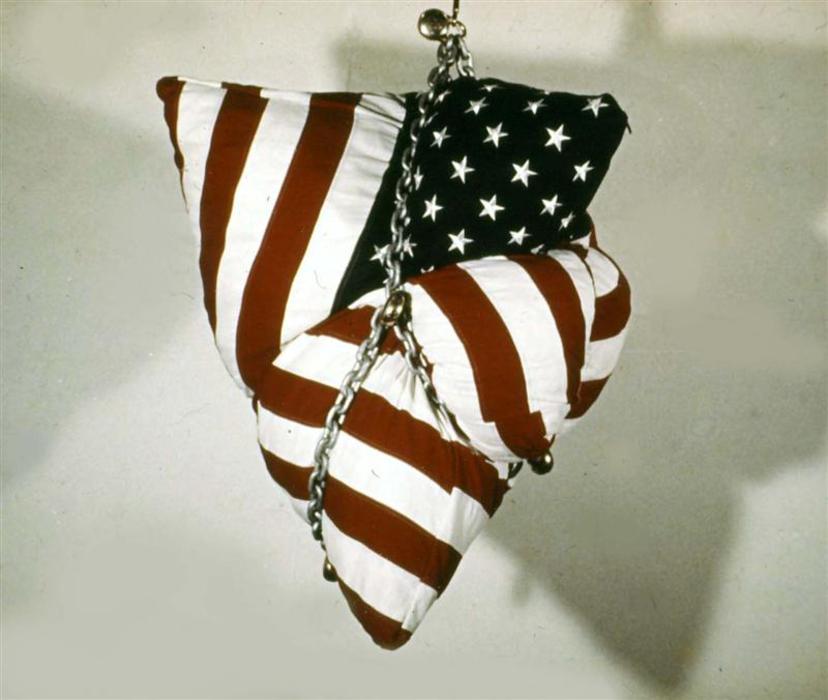
Nick Walsh presents a three-part story about a significant public controversy related to the Vietnam War that happened in my home town of Decatur, Illinois. Using sources from the archives of the Decatur Herald and Review, the Decatur Tribune, Millikin University’s Decaturian, and recent interviews with the one of the controversy’s key figures, Walsh covers how the situation developed, how the public and authorities reacted, and how the court case surrounding the exhibit of Flag in Chains unfolded. I remember the anger of these times fairly vividly. It seemed as if everyone in our community was forced to choose sides.
By using their talents to confront the issues of their time, artists take on a certain amount of risk if their perspectives are contestable in the court of public opinion. While not directly about the Vietnam War, the story of “Flag in Chains” reflects sentiments and convictions rooted in the national discourse of that era. Decatur residents were sporadic in giving their opinions about the war throughout its duration. However, public debate reached a crescendo in 1969, as emotions stemming from the war were channeled into dialogue surrounding a controversial legal case that involved the owner of the Decatur Herald and the Daily Review and a Millikin University art professor. This collision of patriotism and free expression provides a glimpse into the conscience of Decatur residents during the Vietnam War.
Here are links to all three parts of Walsh’s report.
Flag in Chains: A Collision of Sentiments (Part 1) | RE:DECATUR
Flag in Chains: A Collision of Sentiments (Part 2) | RE:DECATUR
Flag in Chains: A Collision of Sentiments (Part 3) | RE:DECATUR